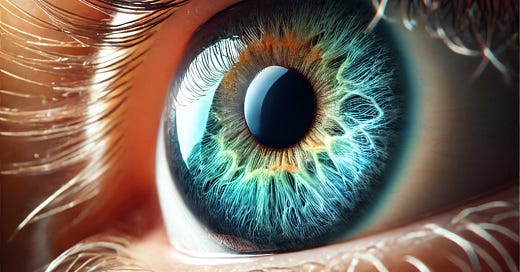A diagnosis of macular degeneration can feel overwhelming, as it impacts the central vision essential for everyday activities such as reading, driving, and recognizing faces. However, macular degeneration, whether dry or wet, doesn’t have to mean a loss of independence. With the right strategies, tools, and mindset, you can adapt to your changing vision and continue leading a fulfilling life.
This article outlines practical approaches to staying independent despite vision challenges, emphasizing holistic care, adaptive tools, and lifestyle changes.
Understanding Macular Degeneration
Macular degeneration affects the macula, the central portion of the retina responsible for sharp, detailed vision.
Dry macular degeneration: Caused by the thinning of the macula and the accumulation of drusen (yellow deposits), it progresses slowly over time.
Wet macular degeneration: Occurs when abnormal blood vessels grow beneath the retina, leaking blood or fluid, leading to rapid vision loss.
Although central vision may be impaired, peripheral vision typically remains intact. By leveraging the remaining vision and adopting adaptive techniques, independence is achievable.
Practical Tips for Maintaining Independence
Optimize Lighting
Use bright, adjustable LED lights with minimal glare in your home.
Install motion-sensor lights to improve safety and accessibility.
Task lighting, such as gooseneck lamps, is especially helpful for activities like reading or sewing.
Use Low Vision Aids
Magnifiers: Handheld, stand-mounted, or electronic magnifiers can enlarge text and images.
CCTV systems: These devices use cameras to project enlarged images onto a screen, making reading and writing easier.
Text-to-speech technology: Apps and devices can read text aloud, providing an alternative way to access printed materials.
Smartphones and tablets: Adjust font size, use screen readers, and install accessibility apps to enhance usability.
Adapt Your Living Environment
Organize spaces: Keep frequently used items in consistent locations.
High-contrast markers: Use brightly colored tape or labels to distinguish objects like switches and dials.
Tactile indicators: Raised stickers or textured surfaces can help identify buttons and controls.
Declutter: Minimize tripping hazards to navigate safely.
Rely on Vision Substitutes
Auditory cues: Use talking watches, clocks, and thermometers.
Braille and large-print materials: These options are widely available for books, menus, and other reading materials.
Voice assistants: Devices like Amazon Alexa, Google Assistant, or Siri can help set reminders, read emails, and control smart home systems.
Utilize Community Resources
Low-vision rehabilitation programs: These services provide personalized training to maximize remaining vision and adapt to daily tasks.
Support groups: Sharing experiences and advice with others facing similar challenges can provide emotional support and practical tips.
Transportation services: Many communities offer ride services for individuals with visual impairments.
Lifestyle and Holistic Approaches to Preserve Vision
Adopt an Anti-Inflammatory Diet
Focus on foods rich in lutein, zeaxanthin, and omega-3 fatty acids to support retinal health.
Foods to include:
Leafy greens like spinach and kale.
Orange and yellow vegetables like carrots and sweet potatoes.
Fatty fish such as salmon and mackerel.
Nuts and seeds like almonds and flaxseeds.
Limit processed foods, refined sugars, and trans fats that can contribute to oxidative stress.
Supplement Wisely
Choose a supplement formula with a combination of vitamins C and E, zinc, copper, lutein, and zeaxanthin. Those vitamins have been shown to slow the progression of dry macular degeneration.
Always consult your healthcare provider before starting supplements.
Exercise Regularly
Physical activity improves circulation, delivering oxygen and nutrients to the eyes.
Aim for 30 minutes of moderate exercise, like walking, swimming, or yoga, most days of the week.
Protect Your Eyes from Harm
UV protection: Wear sunglasses with 100% UVA and UVB protection outdoors.
Limit screen time: Reduce exposure to blue light from screens and use anti-glare filters.
Manage Systemic Health Conditions
Conditions like hypertension and diabetes can worsen macular degeneration. Work with your doctor to control these factors.
Mind-Body Practices
Stress can exacerbate inflammation and eye strain. Techniques like meditation, deep breathing, and tai chi can promote relaxation and overall well-being.
Staying Positive and Building Resilience
Living with macular degeneration requires adapting to new ways of doing things. Maintaining a positive mindset and staying open to trying new tools and techniques is key. Remember that independence doesn’t mean doing everything on your own—it’s about finding strategies that allow you to live life on your terms.




